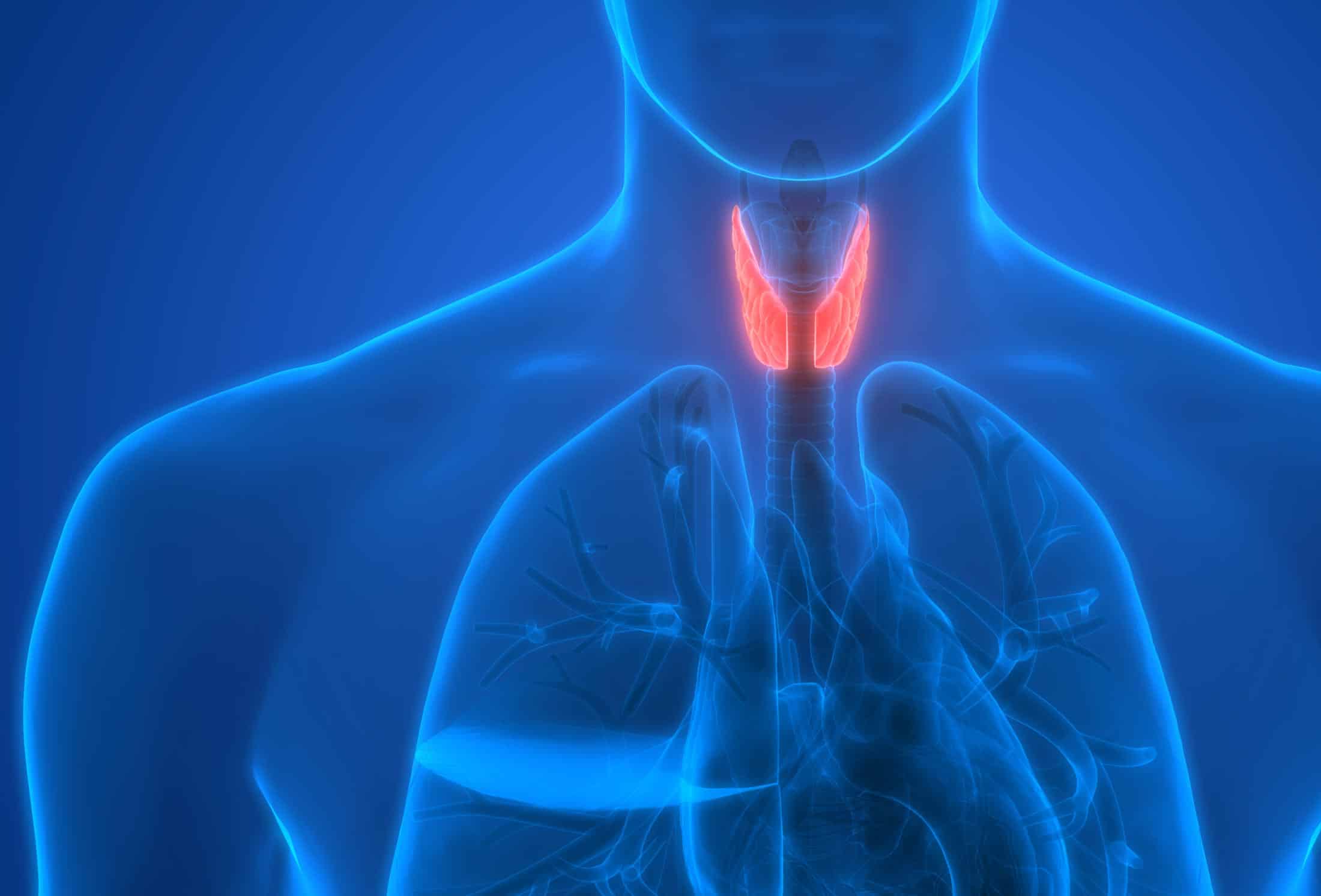Thyroid disorders lead to problems with energy levels, metabolism, and heart rate. This small butterfly-shaped gland in your throat is has a major effect on the body. Without enough thyroid hormone, your cells are not able to produce the energy they need for optimum performance. At the other end of the spectrum, your body can go into “overdrive” if it produces too much thyroid hormone.
Thyroid Issues are More Common Than you Think
With so much at stake with regards to your overall health, maintaining balanced thyroid hormone levels is important. One in eight women produce either too much or not enough thyroid hormone. Females are at higher risk for thyroid issues than men, and the risk for both genders increases with age. In fact the stats for those with undiagnosed thyroid disease are shocking. Hormonal changes like pregnancy or menopause can also make women more vulnerable to thyroid problems. Of course, it’s also easy to attribute thyroid symptoms to age or menopause instead of getting to the root of the issue.
Thyroid Hormones
To understand how your thyroid can wreak havoc on your health, you need to understand how it functions. Your thyroid secrets thyroid hormone which in turn triggers a cascade of other hormones and processes throughout the body. The body is very sensitive to the amount of thyroid hormone it receives so any imbalances can have far reaching repercussions.
Thyroid hormones are regulated by the brain and thyroid stimulating hormone (TSH) is released from the pituitary when more thyroid hormones are required to be produced.
Autoimmune Disorders Can Affect Your Thyroid
Further complicating thyroid health is the fact that your thyroid is vulnerable to autoimmune disorders. The autoimmune disorder Graves’ disease causes too much thyroid hormone to be produced. In contrast, Hashimoto’s disease causes your autoimmune system to attack your thyroid, slowing down thyroid hormone production.
Your thyroid can also become inflamed (this is called Thyroiditis), or develop nodules or small lumps which can disrupt your normal thyroid function.
Hypothyroidism: When Your Body Slows Down
If your thyroid isn’t producing enough thyroid hormone, your body slows down, resulting in a condition called hypothyroidism. The symptoms of hypothyroidism show up in many troublesome ways and include:
| ● Feeling cold all the time ● Dry skin ● Dry hair ● Muscle weakness ● Poor libido ● Memory problems |
● Constipation ● Depression – thyroid can impact serotonin levels ● Weight gain ● Hoarseness ● Elevated cholesterol |
Could You be Experiencing Hypothyroid Symptoms?
Despite this long list of issues, about 60 percent of people with hypothyroidism aren’t aware of it. One reason for this is that it’s easy to blame thyroid symptoms on a poor diet or growing older. As well, hypothyroid symptoms tend to develop slowly, and we often blame ourselves for weight gain.
If you experience any of the symptoms above, it’s a good idea to dig deeper and figure out the root cause – including checking your thyroid! These uncomfortable symptoms do not have to be part of your “normal” day.
Hyperthyroidism: The Consequences of Too Much Thyroid Hormone
In contrast, when your body produces too much thyroid hormone, the condition is called hyperthyroidism. With hyperthyroidism, your body’s functions accelerate. Although this might sound appealing, many of the symptoms are debilitating. Some signs of hyperthyroidism include:
| ● Feeling hot all the time ● Anxiety ● A rapid heartbeat ● Weight loss |
● Sweatiness ● Tremors ● Restlessness ● Missed periods |
As with hypothyroidism, the symptoms of hyperthyroidism are often attributed to other issues, such as stress.
With So Many Symptoms, Why Are Thyroid Disorders Hard to Diagnose?
One challenging problem with identifying thyroid issues is that many conventional medical doctors run one test for thyroid, only testing the amount of TSH in your blood. However, testing one hormone often doesn’t give the complete picture of thyroid health. A more holistic approach which tests various hormone levels throughout the system can often yield more information – and more effective treatment.
I’m Concerned About My Thyroid. What’s the Next Step?
When it comes to resolving thyroid issues, early detection is the key. It’s also important to complete thorough testing- evaluating thyroid hormone levels can be complex and often left undiagnosed by the conventional healthcare system. If you’re experiencing any of the symptoms of thyroid issues – either hyperthyroidism or hypothyroidism, book an appointment with one of our experienced doctors. Test, don’t guess. Thyroid issues do not have to affect your daily life.
Sources
https://www.ncbi.nlm.nih.gov/pubmed/20030460
https://www.health.harvard.edu/staying-healthy/healthy-eating-for-a-healty-thyroid


